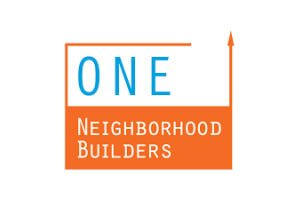Place-based approaches to reducing health inequity
The School of Public Health is a global institution; students and alumni work around the world promoting health equity and improving health outcomes. Equally important as the school’s global footprint, however, is its commitment to the neighborhoods and communities that surround it. Allegra Scharff, MPH ’17, is carrying on this tradition of working to improve public health right here in Rhode Island. Allegra, who studied under the generalist track of the Masters of Public Health program, is now a manager in the community-building department of ONE Neighborhood Builders, a non-profit community development corporation dedicated to revitalizing Providence neighborhoods.
ONE Neighborhood Builders was founded in 1988 as the Olneyvillle Housing Corporation and to date has built over 375 apartments and 115 homes. The organization has three stated goals; 1) to increase the availability of affordable housing, grow the economy, and protect natural resources, 2) to engage community members in a collaborative problem solving process, and 3) to build the financial capability of individuals so that they can attain their own financial goals.
ONE Neighborhood Builders is also one of the core organizations comprising the Olneyville Health Equity Zone (HEZ). These ‘zones’ are an initiative by the Rhode Island Department of Heath that aims to address local health problems by adopting a place-based approach. First introduced in 2015, the 11 zones are spread out across the state and allow individuals and organizations to play a role in implementing local solutions. Across Rhode Island, health equity zones are having a tangible impact on the overall health of their communities. In West Warwick, for example, the HEZ is helping to treat people with addictions by steering them away from the criminal justice system through a program that places a behavioural clinician with the local police department. In Bristol, the HEZ was instrumental in getting a no smoking and vaping ordinance passed for their public parks.
In her role as manager at ONE Neighborhood Builders, Allegra’s job is to run the health equity zone for Olneyville by coordinating a group of 25 not for profit organizations, community leaders, and businesses with the goal of improving the health of Olneyville residents. She manages some of the HEZ’s current programs, like the walking school bus program, which allows children to safely walk to school in the presence of a supervising adult. After the walking school bus program was implemented, the elementary school in the HEZ achieved one of the highest attendance rates out of all the schools in the district. In addition to running current programs, Allegra is always on the lookout for grants to create new programs.
After graduating with a degree in Environmental Studies from Bates College, Allegra sought out opportunities to work with low-income communities to improve local food systems.
“I got my first job at an urban farm behind Galego Court, a public housing complex in Pawtucket,” Allegra said. “I quickly learned that improving fruit and vegetable access, while important, was not enough to improve the health of the community.”
